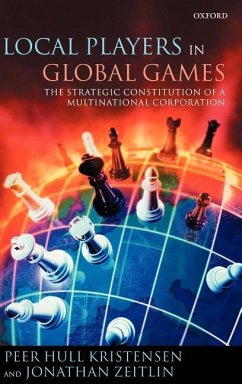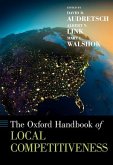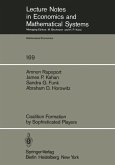What happens when previously autonomous firms from different countries, each with their own identities, routines and capabilities, come together inside a single multinational corporation? Can a cooperative strategy be established that advances the development of the multinational as a whole, or do mutual misunderstandings and the unintended consequences of strategic interaction among the players' lead instead to endemic conflict and disintegration? This book tackles these novel and important questions through an empirical study of the strategic constitution of an 'actually existing' multinational. It does so by tracing the historical construction of the multinational corporation from the confluence of multiple formerly independent firms and analyzing the interacting web of strategies pursued by different actors within it. The analysis reveals how workers, unionists, subsidiary managers, and corporate executives pursue separate strategic games rooted in their local contexts, whose global outcome contrasts sharply with idealized views of the multinational as an integrated and coordinated organization. By comparing these findings to those of the broader literature, the book proceeds to a theoretical examination of the challenges of managing the multinational, and the difficulties of resolving them through conventional organizational means. The authors propose new procedural solutions aimed at fostering mutual recognition and knowledge exchange within the multinational corporation, and explore how a multinational public may be created to press for the necessary reforms in corporate governance. As the success of such reforms is far from preordained, the book concludeswith a series of alternative scenarios that illustrate the many obstacles to a smooth continuation of the globalization process. This is an important and original study of significance for researchers, academics, and advanced students of international business, busines
Hinweis: Dieser Artikel kann nur an eine deutsche Lieferadresse ausgeliefert werden.
Hinweis: Dieser Artikel kann nur an eine deutsche Lieferadresse ausgeliefert werden.








